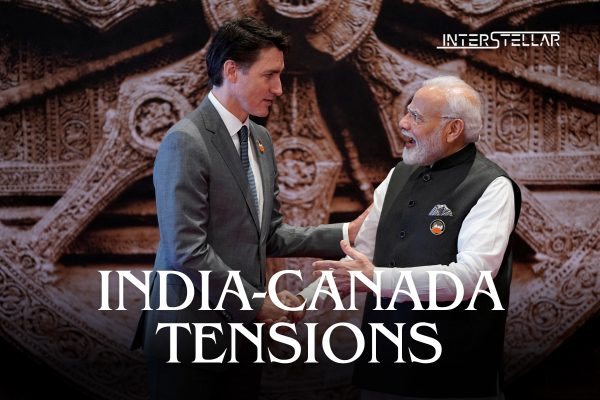India-Canada Dispute Escalates, Risks in Cybersecurity and Immigration Grow, Trade Remains Steady
The diplomatic dispute between Canada and India over alleged violence against Sikh activists in Canada is raising concerns over cybersecurity and immigration, although analysts see minimal immediate impact on trade. The conflict escalated after a senior Canadian official implicated Indian Home Affairs Minister Amit Shah, a close ally of Prime Minister Narendra Modi, as a central figure behind alleged plots against Canadian Sikhs.
Rising Cybersecurity Concerns Amid Diplomatic Tensions
As tensions between the two countries deepen, Canada’s Communications Security Establishment (CSE), which monitors foreign cyber threats, warns of potential cyber espionage activity by India. Caroline Xavier, head of CSE, stated in a press conference that India might increase cyber operations targeting Canadian networks for espionage. The CSE has previously identified India as an emerging cyber threat, and Xavier noted that such activities could increase as diplomatic tensions rise.
Canada expelled six Indian diplomats in October, accusing them of involvement in a 2023 shooting of Sikh leader Hardeep Singh Nijjar in British Columbia. While Indian officials dismissed these claims, the Canadian government maintains its stance, leading to a diplomatic stand-off with consequences that have slowed Canada’s immigration processing in India.
Immigration Backlog Strains Mobility Between Canada and India
Canada has seen a significant reduction in its immigration presence in India, with on-site officials reduced from 27 to just four. This shortage has led to a backlog of visa applications, impacting international students and temporary foreign workers—the majority of whom come from India. Canadian Immigration Minister Marc Miller has expressed concern that this backlog may worsen, potentially reducing legitimate travel between the two countries.
The backlog challenges Canada’s immigration flow, which relies heavily on skilled workers and students from India. Miller highlighted that Canada’s immigration system may see continued strain as diplomatic tensions persist.
Trade Remains Resilient Despite Diplomatic Challenges
India, Canada’s 10th largest trading partner, has shown a strong interest in keeping trade relations stable despite the diplomatic discord. Analysts note that while recent events have tested Canada-India relations, trade, particularly in the agriculture sector, has remained largely unaffected. India relies heavily on Canadian pulses, such as lentils, which support both affordability and food security amid global inflation. Pulse Canada President Greg Cherewyk pointed to India’s consistent demand for affordable pulse crops, which he believes will guide decision-making on trade.
Michael Harvey, Executive Director of the Canadian Agri-Food Trade Alliance, also remains hopeful about preserving trade. “India and Canada have great potential in their trading relationship, and CAFTA hopes we can work back to positive trade discussions,” he said, emphasising the need to maintain and strengthen economic ties.
Future Diplomatic Moves and Potential Long-Term Impact
Canada’s next steps in the dispute may depend on additional evidence in the Nijjar case, according to Vina Nadjibulla, Vice President of the Asia Pacific Foundation of Canada. The upcoming murder trial and ongoing parliamentary testimonies will likely influence Ottawa’s approach. If charges are brought against individuals in India, an extradition process could follow, though it may be protracted and complicated by India’s likely reluctance to cooperate.
While trade remains steady for now, Nadjibulla suggests that the expanded rift could lead to broader impacts in the future. “The disruption is on a bigger scale, and we are still not, I don’t believe, at the bottom of this,” she commented.
The Canada-India relationship faces challenges on multiple fronts, with cybersecurity, immigration, and diplomacy under strain, yet trade relations are, for now, demonstrating resilience.





